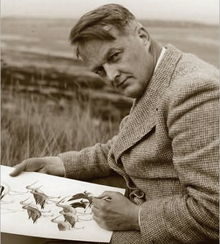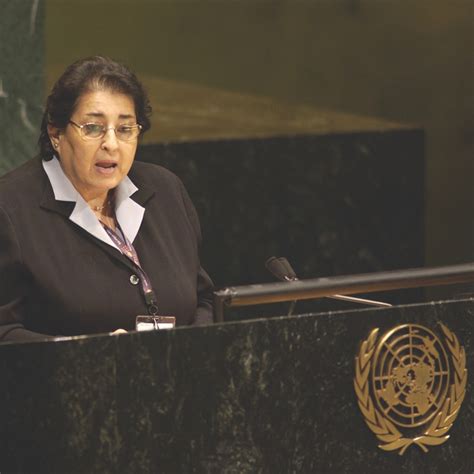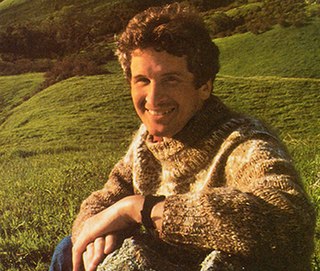A Quote by Jim Elliot
Birds are extremely valued as indicators of overall environmental health. If there's a problem in a wild bird population, it's indicative that something went wrong.
Related Quotes
The problem of environmental children's health is very urgent in Russia. Environmental situation now is the main factor, which determines young generation's health... the volume of pollutant emissions in atmosphere and water grew and scale of ecological man-caused catastrophes increased. More than half of Russian territories, where 60-70 percent of the of population lives, have unsafe ecological situation.
The problem the world faces today is that only one-third of the world's population lives in decent circumstances, while half the population of the world lives on one or two dollars a day. And even as we have this poverty and backwardness, we are facing a global environmental crisis. We need developmental models that will take into account the specific and unique position of each country and at the same time will address the environmental crisis.
The root cause of the looming energy problem - and the key to easing environmental, economic and religious tensions while improving public health - is to address the unending, and unequal, growth of the human population. And the one proven way to reduce fertility rates is to empower young women by educating them.
We must alert and organise the world's people to pressure world leaders to take specific steps to solve the two root causes of our environmental crises - exploding population growth and wasteful consumption of irreplaceable resources. Overconsumption and overpopulation underlie every environmental problem we face today.
Solving the population problem is not going to solve the problems of racism, of sexism, of religious intolerance, of war, of gross economic inequality. But if you don't solve the population problem, you're not going to solve any of those problems. Whatever problem you're interested in, you're not going to solve it unless you also solve the population problem. Whatever your cause, it's a lost cause without population control.
I want us to be judged by the impact we have on the health of the people of Africa and the health of women. Improvements in the health of the people of Africa and the health of women are key indicators of the performance of WHO. This is a health organization for the whole world... But we must focus our attention on the people in greatest need.
Thirty years ago my older brother, who was ten years old at the time, was trying to get a report written on birds that he'd had three months to write, which was due the next day. We were out at our family cabin in Bolinas, and he was at the kitchen table close to tears, surrounded by binder paper and pencils and unopened books about birds, immobilized by the hugeness of the task ahead. Then my father sat down beside him put his arm around my brother's shoulder, and said, "Bird by bird, buddy. Just take it bird by bird.
There is nothing very odd about lambs disliking birds of prey, but this is no reason for holding it against large birds of prey that they carry off lambs. And when the lambs whisper among themselves, "These birds of prey are evil, and does this not give us a right to say that whatever is the opposite of a bird of prey must be good," there is nothing intrinsically wrong with such an argument-though the birds of prey will look somewhat quizzically and say, We have nothing against these good lambs; in fact, we love them; nothing tastes better than a tender lamb.





































